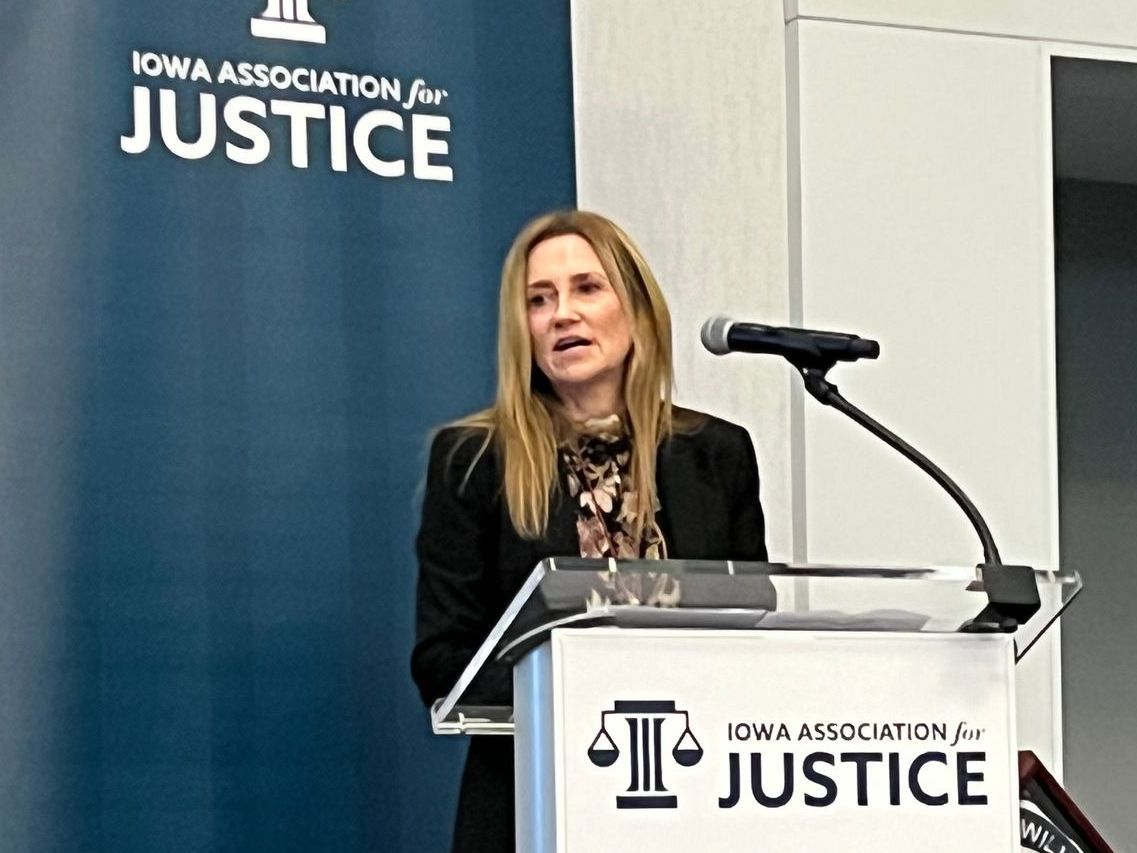By Amanda Thompson
•
17 Jul, 2023
Immediately after the accident: Stop! In most states, a person involved in a motor vehicle accident is required not to leave the scene, even if the accident is minor. You should stop and check for injuries or vehicle damage. If you do leave the scene, you may be criminally prosecuted. Check for injuries. Don’t move an injured person. Call the police and an ambulance, if necessary. If you can’t call, ask someone else to call the police to report the accident. Inform the police of the number of injured people, so that enough emergency personnel report to the scene of the accident. Even if there are no injuries, you should still call the police to get an accident report. While you wait for the police, if possible, turn on your hazard lights, raise the hood or trunk of your car, or set out road flares to alert other vehicles to proceed carefully around the accident. Exchange information with the other driver. Get his or her name, address, phone number, drivers license number, license plate number, insurance company, insurance policy number, and insurance agent’s name and telephone number. You should give the other driver the same information about yourself. If there are any witnesses to the accident, get their identifying information. Ask the police officer who is investigating the accident for his or her business card and the “incident number” so that you can obtain an accident report later. You may also want to take notes about where and how the accident occurred. Include details such as road conditions, speed limits, traffic signals, weather conditions, lighting, and what other cars were doing at the time of the accident. However, if you have to go to court because of your accident, you may have to share these notes with the other driver in the accident. Even if you think that the accident may be your fault, don’t say so. The other driver may have been partially responsible or there may have been other variables involved in the accident. An admission of fault may later be used against you. When the police get to the accident: Cooperate fully with the police when they get to the accident. Stay at the scene of the accident until the police say that you can leave. When you speak to the police, only tell them the facts of the accident. Don’t draw any conclusions. Inform the police of any injuries and of any witnesses. Do not admit that the accident may have been your fault to the police or to any passengers, witnesses, or other drivers. Responsibility for an accident is a matter of the laws of your state and it may not be clear right away. Soon after the accident: Go to a doctor as soon as possible. You may not realize the full extent of your injuries right away. If you don’t see a doctor, your treatment may be delayed and minor injuries could become serious. Even a minor ache can be an indication of a serious problem. If there is any chance that you may have been injured in the accident, see a doctor as soon as possible. An insurance company could argue that not going to see a doctor right away meant that your injury didn’t result from the accident, but from some other event. The longer you wait to see a doctor, the harder it will be to connect your injuries to the accident, and the lower your chances for compensation for your injuries. Be sure to tell your doctor about any memory loss, confusion, disorientation, headaches, dizziness, blood or fluid in your ear, ringing in your ear or nausea. Take pictures of your injuries and the damage to your vehicle. Collect all of your motor vehicle insurance policies for your lawyer to look at. Inform your insurance company of the accident. Talk to a lawyer before filling out any insurance forms, giving recorded statements to any insurance company, or meeting with any representative of any insurance company. It is very important to get legal advice before giving a statement to the other driver’s insurance company. Consult an experienced personal injury lawyer before signing any checks or documents from any insurance company. Later: Within a few days after the accident, write down all important information about the accident. Include information such as license numbers, the make, model and year of all vehicles involved. Also include details about the accident, such as the date, time, location, road conditions, traffic signals, and weather conditions. You will be surprised how quickly you may forget these details. If you haven’t spoken with a lawyer yet, contact a personal injury lawyer with the dedication, experience, and ability to help you maximize the amount of your compensation as well as to minimize the amount of frustration, delay, and confusion involved in your claim. Document all of your injuries and losses. Include medical expenses, transportation costs related to your injuries, expected future medical treatment, lost earnings, future loss of wages, the effect your injury has on your life, and the effect that your injury has on your family. Your lawyer will be able to help you identify all losses that may be connected to your accident. Theories of Liability Negligence Deciding whether a driver was negligent in a motor vehicle accident can be difficult. Sometimes you may feel that another driver, a cyclist, or a pedestrian didn’t use a reasonable amount of care, but you may not know exactly which rule or rules he or she broke. An experienced personal injury lawyer will be able to help you determine if another person was negligent. The attorney will consider many sources, including state traffic laws, police reports and the statements of witnesses to the accident. Courts consider many variables in making a determination that a driver or another person was negligent. These variables may include: Failing to follow traffic signs and signals Disobeying traffic laws Driving on the wrong side of the road Neglecting to signal a turn Driving faster or slower than the posted speed limit Ignoring traffic or weather conditions Driving while under the influence of alcohol or other drugs Recklessness A driver may also be held responsible for an accident if he or she acted recklessly. Reckless driving is driving unsafely, with “willful and wanton disregard” for the possibility that such action will cause an accident. Reckless drivers intentionally disregard the possible consequences of their actions while driving. For example, a driver may be found reckless if he or she threatens or harasses another person while driving out of “road rage” and causes an accident. Road rage is defined as “an assault with a motor vehicle or other dangerous weapon by the operator or passenger(s) of another motor vehicle or an assault precipitated by an incident that occurred on a roadway.” Criminal charges may also result. Between 1990 and 1997, almost 13,000 people were injured or killed in car accidents that were caused by aggressive driving, according to studies by the National Highway Traffic Safety Administration (NHTSA) and the American Automobile Association. Another NHTSA study shows that dangerous driving by others, including speeding, is considered a threat by 60 percent of drivers. Approximately 30 percent of these drivers felt that their personal safety, or the safety of their families, was threatened in the past month. Sixty-seven percent of these drivers felt that their safety was threatened during the past year. Aggressive drivers are those who speed, tailgate, move quickly from lane to lane, flash their headlights excessively and use other dangerous driving techniques. Police officers and traffic safety officers are increasing efforts to catch and punish these aggressive drivers. Aggressive driving is defined by the NHTSA as “a progression of unlawful driving actions,” such as: Speeding, which can be either going faster than the posted speed limit or driving too fast for current conditions Improper passing by either failing to signal, using an emergency lane to pass, or passing on the shoulder of the road Improper or excessive lane changing Failing to signal a turn Failure to yield to oncoming traffic The NHTSA offers the following tips on how to avoid an accident with aggressive drivers: Get out of their way; do everything in your power to get out of the way of an aggressive driver Don’t let your pride get the better of you; don’t challenge the aggressive driver by speeding up or trying to hold your place in your travel lane Avoid eye contact; sometimes looking at an aggressive driver can make them even angrier Avoid gestures; ignore any rude gestures made towards you and don’t make any gestures yourself Report seriously aggressive drivers to the police. Remember to pull over to the side of the road, however, if you use a cell phone. Third Parties Drunk Drivers In the past year, over one million people were injured in alcohol-related motor vehicle accidents and every 30 minutes, someone in the US dies in an alcohol-related accident. In a drunk driving accident, the drunk driver will be held responsible for the injuries and damages that he or she caused. In addition, in many states, a bar or a person who hosted a social event or party may also be responsible for these damages if they served alcohol to a patron or guest who was obviously intoxicated. However, holding the bar or host responsible doesn’t relieve the drunk driver from their obligation to pay for the damages. There are many laws covering liability and an experienced personal injury lawyer will use these laws to take into account everyone who may be held liable for your injuries, including people or business that you might not have considered. Product Manufacturers Sometimes motor vehicle accidents aren’t caused by either driver involved, but by a defect or malfunction in one of their automobiles. If this type of accident occurs, the manufacturer or the supplier of the automobile or automobile part may be held responsible under the law of “products liability.” Products liability law governs lawsuits brought by consumers against sellers of a product for selling a defective product, which caused an injury to the consumer. Manufacturers that create a defective product, either in the designing, manufacturing or labeling stages, can be held responsible for the injuries caused by the product. Under the law of products liability, it doesn’t matter if manufacturers are negligent or not, they are still responsible for any injuries caused by their defective product. Automotive Technicians Another situation in which the drivers in a motor vehicle accident may not be held responsible for the accident is where an auto technicians didn’t correctly repair one of the vehicles and the improper repair caused the accident. If an incorrect repair job caused an accident, the auto mechanic may be found negligent. If the auto mechanic is negligent, the mechanic and his or her employer may be held responsible for the injuries and property damage that the accident caused. Government Bodies Variables unrelated to the drivers or vehicles involved in the accident may also contribute to an accident. These factors may include poorly designed or maintained roads, broken traffic signals, road construction, or obstructions that make it difficult to see the road properly, such as signs, bad lighting, trees or utility poles. If one of these variables causes an accident, government bodies that control these things may be held responsible for any damages. However, there are special rules involved in suing the government. An experienced personal injury lawyer will be aware of these rules and will be crucial in enabling you to win your lawsuit. General Conclusion No matter what the situation is with your accident, it is crucial to the eventual success of your lawsuit that you take steps to investigate your accident, protect evidence, and obtain the professional opinion of doctors or other experts about any injuries or damages that you have suffered. If you have been in a motor vehicle accident, a personal injury lawyer will be able to assist you with all of these things. An experienced personal injury lawyer will also be able to decide the best method to help you recover compensation for your injuries or property damage. Injuries and Compensation In general, a person who is injured in a car accident can be compensated for the actual costs of their medical expenses, property damage, economic damages (such as loss of income), as well as physical and emotional pain and suffering. Lawsuits over motor vehicles accidents can be very complex. In order to get the amount of compensation to which you are entitled, you should speak with a personal injury attorney who is experienced in motor vehicle accidents and compensation. Damages In all negligence cases, including car accidents, the injured person may be compensated for the costs of medical and rehabilitative services, physical and mental pain and suffering, lost income (both past and future), permanent injury or impairment and permanent scarring or disfigurement. Other damages that are typical in motor vehicle accident cases include physical property damage, reasonably foreseeable medical expenses, and loss of enjoyment of life. Just because you had a previous injury does not necessarily bar you from being compensated for new injuries. An injured party may still be compensated for worsening or exacerbating an old injury. A good way for a person injured in an accident to document how his or her injuries affect their life is to keep a diary or journal that describes how the injury affects him or her every day as well as his or her immediate family. This diary or journal will be helpful in determining the type and amount of compensation that is appropriate. Damages for Family Members In addition to compensation received by the person injured in the car accident, the injured person’s spouse may also be eligible for compensation. A spouse can recover for harm to the marital relationship, known as “loss of consortium.” Generally, both the husband and the wife ask for this type of compensation. Loss of consortium refers to any harm to the martial relationship that was caused by the accident. This harm may include loss of the spouse’s love, companionship, reassurance, affection, consolation, moral support, sexual relationship, ability to have children, as well as the spouse’s physical assistance in operation and maintenance of a home. Loss of consortium does not have to be permanent, it can also be temporary. Insurance Generally, the person injured in an accident will be compensated by the insurance company of the driver who was responsible for the accident. If that driver does not have insurance or if he or she does not have enough insurance coverage, the accident victim’s own insurance will cover his or injuries through an uninsured or under-insured motorist clause. Other insurance policies, such as the insurance policies of employers or family members, may supply additional benefits to the injured person. In some states, an injured person may receive some compensation for their injuries, even if the accident was partially his or her fault. If you have been in an accident, a personal injury lawyer experienced in motor vehicle accidents will help you review your insurance policies and determine the amount of compensation to which you are entitled. Amount of Compensation In a car accident case, the amount of compensation depends on several variables. Some of those factors are: if you are in a no-fault state, how easy it is to show that the accident was another person’s fault, the type and the severity of the injuries involved, the kind of medical treatment necessary, and the amount of insurance coverage available. Other issues that may be important include: how the accident occurred, how much vehicle damage is involved, the amount of past and future medical expenses, whether there is permanent injury or disfigurement, and how much income was lost as a result of the accident. Each motor vehicle accident case is unique, so it is important to contact an experienced personal injury lawyer to ascertain the amount of compensation in your case. Injuries and Compensation Conclusion Horrible injuries can result from a motor vehicle accident. Severe injuries can influence not only the accident victim, but also his or her family. Even relatively small injuries can stress a family, if those injuries require medical care and required time away from work. If you have been injured in a motor vehicle accident, a personal injury lawyer can answer your questions about the compensation you can expect for your injuries. Your lawyer will assist you by pursuing the person or the company that caused your injuries, verifying the amount of insurance coverage available and making sure you get the most compensation possible for your injuries. Insurance Claims Tips One thing you should do before you call your agent, is to make sure that you review your insurance policy. Be certain that you understand your policy, especially the “Coverage” and “Exclusion” sections. As soon as possible after an accident, call your agent. Call as soon as you get home and even before you see a doctor. Take detailed notes of all conversations with your insurance company. Be sure to get the names, phone numbers, and job titles of everyone you speak with. Get his or her supervisor’s name as well. Keep receipts of any expenses, such as meals or travel expenses, that you incur in connection with the time spent pursuing your insurance claim from the time of the accident until you reach a final settlement with your insurance company. Don’t allow any written or recorded statements with your insurance company until you are certain that you understand your insurance policy. The insurance company cannot require you to allow your telephone conversations to be recorded. If you have any questions about recorded statements, contact a lawyer. Is your accident covered by other insurance policies as well? Many times, more than one policy may cover your claim. Look over your homeowner’s policy, umbrella coverage policies, and any coverage you may have under your credit cards. If it’s possible, take pictures. Don’t go to extremes, but definitely take pictures of your vehicle damage and injuries. It’s important to be open and honest with your insurance agent. Even if something is personally embarrassing, it’s better that your insurer knows about it. Withholding facts or information from your insurer may cause them to deny coverage of your claim or invalidate your insurance policy. There is a difference between replacement coverage and actual cash value. If you have replacement coverage, it may cover the cost of a new vehicle. If you take the actual cash value of your destroyed vehicle instead, you may take a loss. However, if you have replacement coverage, you may be required to actually replace the destroyed vehicle before you can get reimbursed for the cost of replacement. Be careful when accepting the estimate or appraisal of your losses that is given to you by your insurer. Insurance companies will often try to get you to accept the estimate given by their estimator or contractor. These estimates may be slightly lower than actual repair or replacement costs. Do not sign any releases or waivers of any kind without advice from a lawyer. You may feel pressured to accept an early, insufficient settlement from your insurance company if your financial situation is dire after your accident. However, there may be other damages you could include in your claim that you didn’t think about at first. Consulting with a lawyer will help you make sure that you haven’t forgotten anything. Make sure that you read all the fine print on any payment from an insurance company. Be aware of the time limits set by your insurance policy. Most policies require a signed proof of loss within a set time period, unless you get a written waiver of this requirement from your insurance company. If your claim has not been adjusted to your satisfaction, most policies only allow you one year to bring a lawsuit. Contact a lawyer immediately if your claim has not been adjusted fairly by eleven months after your accident. If you do not, you might lose your right to sue. Don’t accept any check that says “final payment” unless you are ready to accept a final payment. Remember that you have a legal contract with your insurance company. Your insurer has a legal obligation to give you the coverage that was promised to you. Insist on enforcement of that obligation. Uninsured or Underinsured Drivers Drivers are required to carry a certain amount of insurance coverage in case of a motor vehicle accident. However, many drivers ignore this requirement, cannot afford insurance, or don’t carry enough insurance. Uninsured motorist coverage is a type of insurance that covers bodily injuries received in an accident with a driver who is legally responsible for the injuries, but who doesn’t have any insurance coverage. Underinsured motorist insurance covers bodily injuries from an accident with a driver who has liability insurance, but that insurance coverage is lower than the injured person’s underinsured motorist insurance coverage. It is important to contact a lawyer experienced in personal injury claims as soon as possible if you have been in an accident with an uninsured or underinsured driver so that you don’t waive any of your legal rights. Uninsured Drivers Generally, uninsured motorist insurance covers people injured in an accident with a driver who doesn’t have any insurance. Uninsured motorist insurance may also cover hit-and-run accidents where the other driver isn’t identified. A person who has uninsured motorist insurance and is an accident with an uninsured driver may be able to receive compensation for their injuries from their own insurance company. If you have been in an accident with an uninsured driver, contact an experienced personal injury attorney before you file your insurance claim to make sure that you obtain all of the available compensation. Underinsured Drivers Underinsured motorist insurance covers injured persons when the responsible driver does not have enough insurance to fully compensate the injured person for all of his or her injuries. If a person purchases the very minimum amount of insurance coverage required by law, they may be an underinsured driver. If compensation for your injuries is greater than the insurance coverage available from the responsible driver’s insurance policy, you may be able to obtain the difference from your own insurance company. Collecting Damages To be compensated under uninsured or underinsured motorist insurance, the injured party has to prove that (1) he or she endured significant injuries and (2) the other driver was responsible for the accident. If the accident was with an underinsured driver, the injured party must also collect the maximum amount allowed under the other driver’s insurance policy before the injured party can collect the rest of the injury compensation from his or her own insurance company. Uninsured or Underinsured Drivers Conclusion If you are injured in an accident with a driver who doesn’t have insurance or doesn’t have enough insurance, uninsured or underinsured motorists insurance may cover your injuries. Contact an experienced personal injury lawyer if you have been in an accident and do not settle with the other driver’s insurance company. Some insurance companies are not required to pay under your underinsured motorist insurance policy if you have already settled with the other driver’s insurance company. Your lawyer can provide you with all of the information and assistance you need to get the maximum amount of compensation for your injuries. No-Fault Insurance Assignment of responsiblity for compensation for injuries in a car accident depends on the laws of the state where the accident happens. In a no-fault insurance state, neither driver in an accident is considered responsible and each driver submits a claim to his or her own insurance company. Florida, Kansas, Kentucky, Massachusetts, Michigan, Minnesota, New Jersey, New York, Pennsylvania and some other states all have some form of no-fault insurance laws. No-fault insurance is difficult to understand and the law is different in each state that offers this insurance. If you have been in an accident, it is important that you consult a personal injury lawyer with experience in motor vehicle accidents to discuss your state’s laws and how they may affect your right to be compensated for your injuries and vehicle damage. A No-Fault Insurance System Any vehicle insurance system that requires all drivers to purchase insurance for their own injuries and limits a driver’s ability to sue another driver is a “no-fault” insurance system. If you are involved in an accident under a no-fault insurance system, it doesn’t matter who was responsible for the accident, your insurance company will compensate you for you injuries, up to your coverage limit. Other drivers involved in the accident will be compensated by their own insurance companies. Under a one-hundred percent no-fault insurance system, drivers would be completely compensated for injuries by their own insurance companies and no driver could ever sue another driver. Currently, however, no states use a 100% no-fault system. States that use no-fault insurance policy systems use a blend of no-fault systems and standard systems, where the responsible person pays for compensation for injuries. All of these states permit lawsuits in some situations. The requirements for the type and amount of no-fault insurance vary from state to state. Some states allow an injured person to sue if their injuries are severe, while lawsuits depend on the total dollar amount of the injuries in other states. In many modified no-fault systems, insurance companies compensate the injured person for economic damages to the insurance policy limit, but the injured person can sue for non-economic damages greater than a certain amount. Economic damages are tangible costs, such as medical costs and wages lost because of time away from work. Non-economic damages are more intangible and may include consequences such as loss of enjoyment of life and serious, permanent scarring or disfigurement. The amount of non-economic damage that must be suffered before an injured person can sue differs from state to state. If you have been in an accident in any no-fault state, it is important to consult with a personal injury lawyer experienced in motor vehicle accidents to examine your state law. Choice No-Fault Some states, such as Pennsylvania and New Jersey have a choice no-fault insurance system. Under this system, drivers choose whether they want to be insured under a no-fault plan or whether they want to keep some of the standard responsibility rights to sue under a modified no-fault plan. If drivers choose the no-fault plan, they cannot sue other drivers for non-economic damages, but they also cannot be sued. If drivers choose the modified no-fault plan, then they can sue other drivers, but they can be sued as well. A personal injury lawyer experienced in no-fault insurance motor vehicle accidents can help you sort through these complicated issues, whether or not you are in a no-fault state. A No-Fault Insurance Policy If you are insured in a no-fault state, that part of your motor vehicle insurance is usually called Personal Injury Protection. The items covered under a Personal Injury Protection package varies from state to state, but generally, compensation is available for most costs related to an injury, including medical costs, lost wages, loss of services, funeral expenses, and death benefits. Other types of compensation are usually not covered by no-fault insurance, including pain and suffering, emotional distress, and inconvenience. Additionally, medical expenses or lost income above established maximum is usually not covered. Other insurance may be needed to cover physical damage to vehicles. No-Fault Insurance Conclusion A one-hundred percent no-fault insurance system may simplify compensation for motor vehicle accident injuries, although no states currently have 100% no-fault systems. Instead, no-fault systems vary greatly from state to state and these systems can be very confusing. An experienced personal injury lawyer can help you make decisions in order to get the appropriate amount of compensation.








